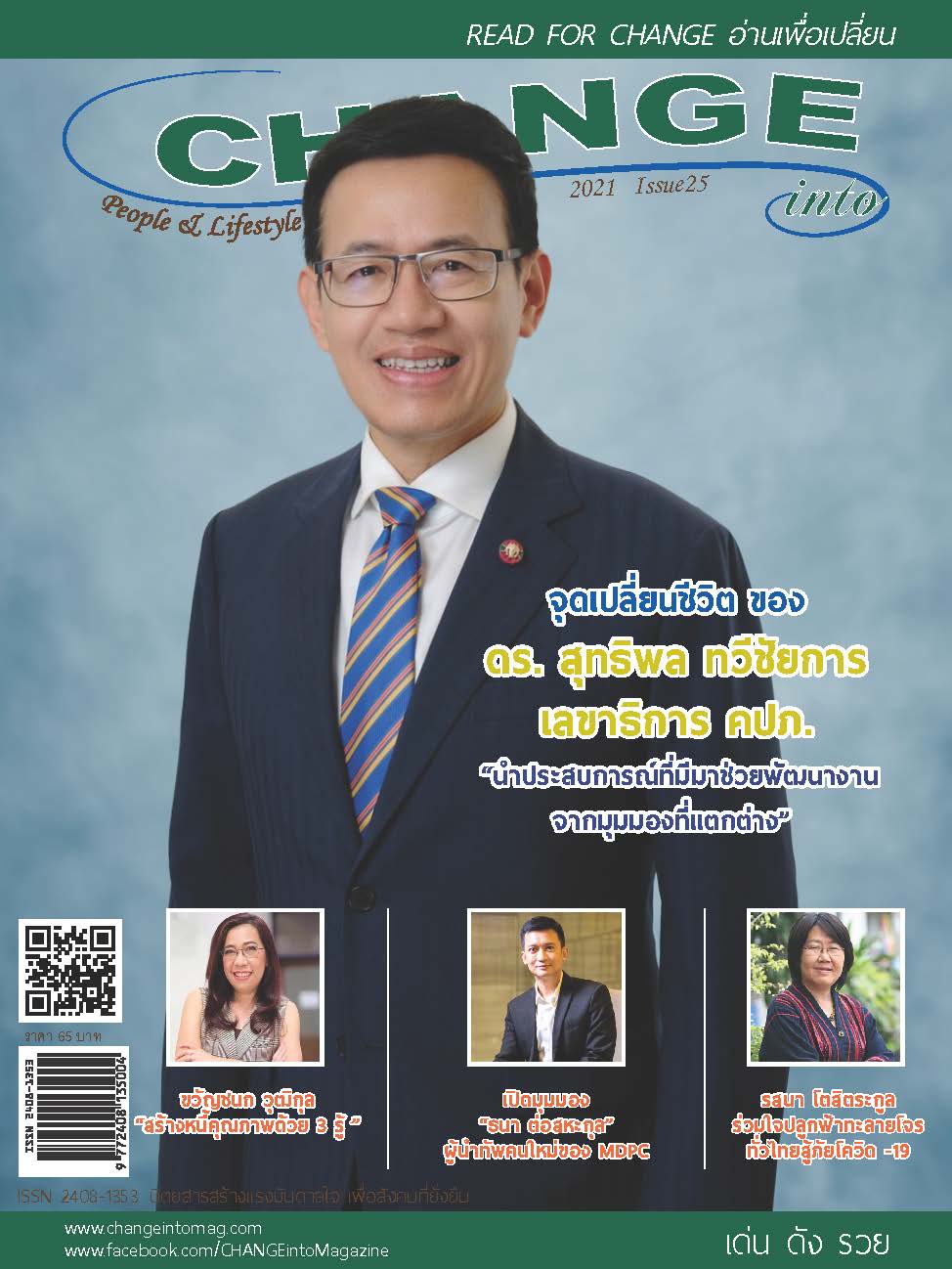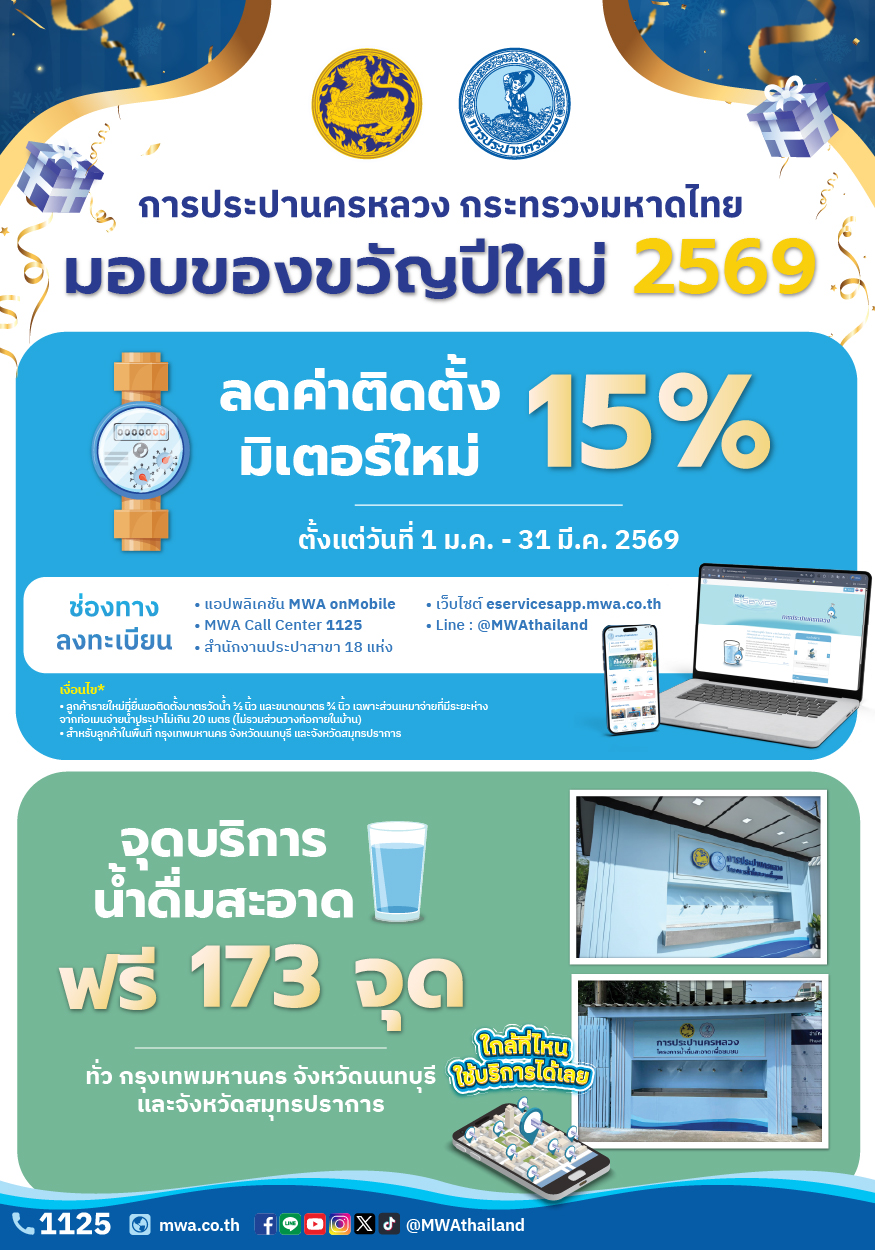เคทีซี x สภาพัฒน์ฯ ชี้เศรษฐกิจปี 2568 โอกาสเติบโตท่ามกลางความท้าทาย ในอุตสาหกรรมสินเชื่อผู้บริโภค

เคทีซี x สภาพัฒน์ฯ ชี้เศรษฐกิจปี 2568 โอกาสเติบโตท่ามกลางความท้าทาย ในอุตสาหกรรมสินเชื่อผู้บริโภค
เคทีซีเปิดเวทีเสวนา KTC FIT Talk 13 "โฟกัสเศรษฐกิจปี 2568: โอกาสและความท้าทาย" นำเสนอข้อมูลแนวโน้มเศรษฐกิจ การรับมือความผันผวนและปัจจัยเสี่ยงสำคัญที่อาจเกิดขึ้นในปี 2568 ชี้อุตสาหกรรมสินเชื่อผู้บริโภคมีโอกาสเติบโตท่ามกลางความท้าทาย โดยมีดร. ศุภวุฒิ สายเชื้อ ประธานสภาพัฒนาการเศรษฐกิจและสังคมแห่งชาติ และนายอภิเชษฐ์ เกียรติวรคุณ ผู้อำนวยการ - การเงิน “เคทีซี” ร่วมแลกเปลี่ยนมุมมอง ณ “เคทีซี” อาคารยูบีซี 2
ดร. ศุภวุฒิ สายเชื้อ ประธานสภาพัฒนาการเศรษฐกิจและสังคมแห่งชาติ เผยถึงแนวโน้มของเศรษฐกิจโลกและเศรษฐกิจไทยว่า “เศรษฐกิจไทยในปี 2567 จะขยายตัวได้ประมาณ 2.7% โดยไตรมาส 4/2567 จีดีพีจะขยายตัวได้ 4% จากมาตรการกระตุ้นเศรษฐกิจของรัฐบาล การท่องเที่ยวที่ฟื้นตัวต่อเนื่อง และการขยายตัวของการส่งออก แต่ในปี 2568 นั้น ไอเอ็มเอฟคาดการณ์ว่า จีดีพีจะขยายตัว 2.9% แต่แนวโน้มยังคงมีความไม่แน่นอนสูง โดยมีความเสี่ยงที่โน้มเอียงไปในทิศทางขาลง ซึ่งทางไอเอ็มเอฟคงจะนึกถึงการชนะการเลือกตั้งของประธานาธิบดีทรัมป์ และความเสี่ยงของภูมิรัฐศาสตร์ ดังนั้นหากมองไปในปี 2568 จะมี 4 ปัจจัยที่ช่วยขับเคลื่อนเศรษฐกิจได้คือ
1. การส่งออกสินค้าซึ่งคิดเป็นสัดส่วนประมาณ 50% ของจีดีพี โดยการส่งออกของไทยไปสหรัฐฯ เท่ากับเกือบ 10% ของจีดีพี จะมีความเสี่ยงที่เกี่ยวข้องกับโอกาสที่มีผลกระทบทางลบหรือความเสียหาย (downside risk) มาก และตลาดยุโรปกับจีนก็ดูจะไม่แข็งแรง
2. การท่องเที่ยวคงจะฟื้นตัวต่อไป คือจำนวนนักท่องเที่ยวต่างประเทศในปี 2568 น่าจะกลับไปที่ 40 ล้านคน เท่ากับปริมาณก่อนการระบาดของโควิด 19 แต่รายจ่ายต่อหัวจะยังต่ำกว่า
3. แรงกระตุ้นจากภาครัฐคงจะมีต่อเนื่องถึงประมาณกลางปีหน้า จากการแจกเงินก้อนสุดท้าย และการเร่งใช้งบลงทุน แต่การที่รัฐมนตรีคลังพูดถึงการเก็บภาษีเพิ่ม แปลว่า นโยบายการคลังน่าจะตึงตัวขึ้น
4. นโยบายการเงินนั้น ตลาดคาดการณ์ว่าธนาคารแห่งประเทศไทย จะลดดอกเบี้ยนโยบายลง 2 ครั้งในปี 2568 เพราะเงินเฟ้อต่ำมาก แต่ในขณะเดียวกันธนาคารแห่งประเทศไทย ก็ยังคงจะส่งสัญญาณให้ธนาคารพาณิชย์เข้มงวดกับการปล่อยสินเชื่อใหม่ และธนาคารพาณิชย์เองก็คงจะต้องใช้เวลากับการแก้หนี้เสียที่ยังหลงเหลืออยู่ไม่น้อย ดังนั้น แนวโน้มของการลดลงของสัดส่วนหนี้สินต่อรายได้ (debt deleveraging) ก็จะยังดำเนินต่อไปในปี 2568
อย่างไรก็ตาม หากธนาคารแห่งประเทศไทยผ่อนคลายนโยบายการเงินเชื่องช้าเกินไป ผลที่จะตามมาคือ กำลังซื้อในประเทศจะไม่แข็งแรงและเงินบาทจะแข็งค่าขึ้นไปอีกได้”
นายอภิเชษฐ์ เกียรติวรคุณ ผู้อำนวยการ - การเงิน “เคทีซี” หรือ บริษัท บัตรกรุงไทย จำกัด (มหาชน) เผยถึงแนวโน้มของเศรษฐกิจไทยว่า “เศรษฐกิจไทยมีแนวโน้มเติบโตร้อยละ 2.9 ในปี 2568 ท่ามกลางความไม่แน่นอนของนโยบายการค้าโลก โดยเฉพาะประเด็นการขึ้นภาษีนำเข้าของสหรัฐฯ ที่อาจส่งผลกระทบต่อห่วงโซ่การผลิตและการส่งออกในภูมิภาค การที่สหรัฐฯ อาจขึ้นภาษีนำเข้าสินค้าจากจีนเพิ่มเติมอีกร้อยละ 60 และขึ้นภาษีทั่วไปร้อยละ 10 สำหรับประเทศอื่นๆ จะนำไปสู่การเปลี่ยนแปลงในรูปแบบการค้าและการลงทุนระหว่างประเทศ อย่างไรก็ตาม ไทยมีโอกาสได้รับประโยชน์ในระยะสั้น จากการย้ายฐานการผลิตของจีนมายังอาเซียน (China+1) แม้ว่าในระยะยาวอาจต้องเผชิญกับการแข่งขันที่รุนแรงขึ้นในตลาดส่งออก จุดแข็งสูงสุดของการเติบโตคาดว่าจะอยู่ในช่วงไตรมาส 4/2567 และไตรมาส 1/2568 โดยมีปัจจัยสนับสนุนจากนโยบายการเงินที่ผ่อนคลาย คาดว่าธนาคารแห่งประเทศไทยจะปรับลดอัตราดอกเบี้ยนโยบายลงมาอยู่ที่ร้อยละ 1.50-2.00 สอดคล้องกับทิศทางทั่วโลก เนื่องจากเงินเฟ้อที่ชะลอตัวและราคาพลังงานที่คาดว่าจะปรับลดลง การลงทุนโดยตรงจากต่างประเทศโดยเฉพาะในกลุ่มอิเล็กทรอนิกส์และดิจิทัลยังคงมีแนวโน้มเข้ามาต่อเนื่อง โดยมีอาเซียนเป็นศูนย์กลางการลงทุนที่สำคัญ รวมถึงการใช้จ่ายภาครัฐที่คาดว่าแข็งแกร่งในช่วงครึ่งปีแรกของ 2568
ภาคธุรกิจที่มีแนวโน้มเติบโตโดดเด่น ได้แก่ ธุรกิจร้านอาหารและโรงแรม บริการสุขภาพที่ได้ประโยชน์จากสังคมผู้สูงอายุ และสถาบันการเงินที่มีการพัฒนานวัตกรรมทางการเงินและปรับตัวสู่ดิจิทัล โดยเฉพาะการพัฒนาผลิตภัณฑ์ที่ช่วยให้ลูกค้าบริหารจัดการหนี้ได้อย่างมีประสิทธิภาพ ความสำเร็จในการขับเคลื่อนเศรษฐกิจไทยในปี 2568 จะขึ้นอยู่กับความสามารถในการใช้ประโยชน์จากการเปลี่ยนแปลงของห่วงโซ่การผลิตโลก ควบคู่ไปกับการบูรณาการความร่วมมือระหว่างภาครัฐและเอกชน และการบริหารจัดการความเสี่ยงอย่างรอบคอบ เพื่อสร้างการเติบโตที่ยั่งยืนในระยะยาว อุตสาหกรรมสินเชื่อผู้บริโภคมีโอกาสเติบโตจากเศรษฐกิจที่จะเร่งตัวขึ้น และต้นทุนทางการเงินที่ลดลง ซึ่งเอื้อให้สถาบันการเงินสามารถนำเสนอผลิตภัณฑ์ที่แข่งขันได้มากขึ้น รวมถึงการนำเทคโนโลยีมาใช้จะช่วยขยายการเข้าถึงบริการทางการเงิน อย่างไรก็ตาม ความ ท้าทายสำคัญยังคงเป็นเรื่องหนี้ครัวเรือนที่อยู่ในระดับสูง ซึ่งต้องมีการบริหารความเสี่ยงอย่างรัดกุม รวมถึงการปรับตัวต่อกฎระเบียบที่เข้มงวดขึ้นและการแข่งขันจากผู้ให้บริการเดิมและผู้เล่นใหม่ โดยเคทีซีพร้อมที่จะเสนอผลิตภัณฑ์ที่ช่วยให้ลูกค้าสามารถจัดการหนี้ได้อย่างมีประสิทธิภาพ เป็นธรรม และตอบโจทย์รูปแบบการใช้ชีวิตที่ปรับเปลี่ยนตามยุคสมัย
ทิศทางธุรกิจเคทีซีในปี 2568 จะนำพาองค์กรสู่องค์กรดิจิทัลอย่างยั่งยืนด้วย 3 องค์ประกอบ คน ระบบและเทคโนโลยี เราเชื่อมั่นว่าการทำความเข้าใจแนวโน้มเศรษฐกิจในอนาคต และการวางแผนกลยุทธ์ที่รอบคอบ จะช่วยให้เคทีซีสามารถเติบโตได้อย่างยั่งยืนในยุคที่โลกเผชิญความเปลี่ยนแปลงครั้งใหญ่ เรามุ่งมั่นสนับสนุนการพัฒนาทางเศรษฐกิจและสังคมไทย ด้วยบริการทางการเงินที่ทันสมัยและครบวงจร พร้อมเป็นพันธมิตรเชิงกลยุทธ์ในการช่วยขับเคลื่อนเศรษฐกิจของประเทศ ด้วยการขยายผลิตภัณฑ์และบริการที่ตอบสนองความต้องการของลูกค้า รวมถึงการใช้เทคโนโลยีเพื่อเสริมสร้างการเข้าถึงบริการทางการเงิน และขยายฐานลูกค้าให้กว้างขึ้น เพื่อรักษาตำแหน่งผู้นำในตลาดสินเชื่อผู้บริโภคและสนับสนุนเศรษฐกิจไทยให้เติบโตอย่างยั่งยืนในปี 2568 และต่อไปในอนาคต”
ผลการดำเนินงานในปี 2567 เคทีซีทำกำไรสุทธิ 5,549 ล้านบาทในช่วง 9 เดือนแรก และคาดว่าจะบรรลุเป้าหมายกำไรสุทธิ 7,295 ล้านบาทในสิ้นปี สำหรับปี 2568 บริษัทตั้งเป้ากำไรสุทธิที่เพิ่มขึ้นจากปีก่อนหน้า โดยพอร์ตสินเชื่อรวมคาดว่าจะเติบโตในอัตรา 4-5% พร้อมรักษาคุณภาพของพอร์ตสินเชื่อให้มีอัตราส่วนหนี้ที่ไม่ก่อให้เกิดรายได้ หรือ NPL (Non-Performing Loan) ไม่เกิน 2.0% เคทีซียังวางแผนเพิ่มยอดการใช้จ่ายผ่านบัตรเครดิต 10% โดยใช้กลยุทธ์สร้างการมีส่วนร่วมกับลูกค้า และขยายผลิตภัณฑ์บัตรกดเงินสด “เคทีซี พราว” (KTC PROUD) เติบโต 3% และยอดลูกหนี้ใหม่ของสินเชื่อ “เคทีซี พี่เบิ้ม รถแลกเงิน” เท่ากับ 3,000 ล้านบาท ด้วยโซลูชันการเงินเฉพาะบุคคลที่ตอบโจทย์ความต้องการของผู้บริโภค
KTC x NESDC Pinpoints Growth Opportunities Amidst
Challenges for the 2025 Economy and Consumer Finance Industry
KTC hosts KTC FIT Talk 13 "2025 Economy Deep Dive: Opportunities and Challenges," highlighting economic trends, strategies for managing fluctuations, and key risks in 2025. The discussion emphasizes growth opportunities in the consumer finance industry despite challenges. Speakers include Dr. Supavud Saicheua, Chairman of the National Economic and Social Development Council (NESDC), and Mr. Apichet Kiatworakun, Director - Finance at KTC, held at the “KTC” UBC II building.
Dr. Supavud Saicheua, Chairman of NESDC shared insights on the global and Thai economic outlook, “The Thai economy in 2024 is expected to grow by approximately 2.7%. In Q4 2024, GDP is projected to rise by 4%, driven by government stimulus measures, a steady recovery in tourism, and export expansion. For 2025, the IMF forecasts GDP growth at 2.9%, but the outlook remains highly uncertain with potential downside risks, likely influenced by President Trump’s election victory and geopolitical tensions. Moving into 2025, 4 key factors will drive economic growth:
1. Exports, which contribute about 50% of GDP, face significant downside risks, with Thai exports to the US making up nearly 10% of GDP. Weak demand from Europe and China further dampens prospects.
2. Tourism is expected to continue its recovery, with foreign arrivals in 2025 likely reaching 40 million, matching pre-COVID levels. However, per capita spending is projected to remain lower.
3. Government stimulus is anticipated to persist until mid-2025, driven by final cash handouts and accelerated investment spending. However, discussions of tax hikes by the Finance Minister suggest fiscal policy may tighten.
4. Monetary policy is expected to see the Bank of Thailand cutting interest rates twice in 2025 due to very low inflation. Nonetheless, stricter lending guidelines from the Bank of Thailand and ongoing efforts by commercial banks to resolve non-performing loans will likely extend the trend of debt deleveraging.
However, if the Bank of Thailand eases monetary policy too slowly, domestic purchasing power may remain weak, and the baht could strengthen further."
Mr. Apichet Kiatworakun, Director - Finance at KTC or Krungthai Card Public Company Limited, shared the outlook for the Thai economy, “The Thai economy is projected to grow by 2.9% in 2025 amid uncertainties in global trade policies, particularly US import tariffs that could disrupt production chains and exports in the region. The potential for the US to raise tariffs by 60% on Chinese goods and 10% on other countries could alter global trade and investment patterns. However, Thailand may benefit in the short term from China's shift of production to ASEAN (China+1), though long-term competition in export markets may intensify. The strongest growth is expected in Q4/2024 and Q1/2025, supported by accommodative monetary policies. The Bank of Thailand is likely to cut the policy interest rate to 1.50-2.00%, in line with global trends, due to slowing inflation and anticipated lower energy prices. Foreign direct investment, particularly in electronics and digital sectors, continues to flow in, with ASEAN as a key investment hub. Government spending is also expected to remain strong in the first half of 2025.”
Business sectors with strong growth potential include restaurants and hotels, healthcare services catering to an aging population, and financial institutions that have embraced digitalization and financial innovations, particularly in products that help customers manage debt. The success of driving Thailand's economy in 2025 will depend on leveraging changes in the global supply chain, alongside effective public-private sector collaboration and prudent risk management to foster sustainable long-term growth.
The consumer finance industry has growth potential driven by an accelerating economy and lower funding costs, enabling financial institutions to offer more competitive products. The adoption of technology will also expand access to financial services. Despite this, the key challenge remains high household debt, requiring strict risk management, adaptation to tighter regulations, and increased competition from existing and new providers. KTC is committed to offering products that help customers manage debt effectively, fairly, and in line with evolving lifestyles.
KTC’s business direction in 2025 focuses on becoming a sustainable digital organization with 3 key components: People, Process, and Technology. We believe that understanding future economic trends and strategic planning will enable KTC to grow sustainably in a rapidly changing world. We are committed to supporting the development of the Thai economy and society through modern, comprehensive financial services. As a strategic partner, we aim to drive the country's economy by expanding products and services that meet customer needs, leveraging technology to enhance access to financial services, and broadening our customer base. This will help maintain our leadership in the consumer finance market and support sustainable growth for the Thai economy in 2025 and beyond.”
Regarding performance in 2024, KTC reported a net profit of 5,549 million baht in the first 9 months and expects to reach its target of 7,295 million baht by year-end. For 2025, the company aims to increase net profit from 2024, with a loan portfolio growth target of 4-5% while maintaining a non-performing loan (NPL) ratio of no more than 2.0%. KTC plans to boost credit card spending by 10% through customer engagement strategies, expand the "KTC PROUD" Cash Card product by 3%, and grow the KTC P BERM Car for Cash new booking to 3,000 million baht, offering personal financial solutions tailored to consumer needs.

























